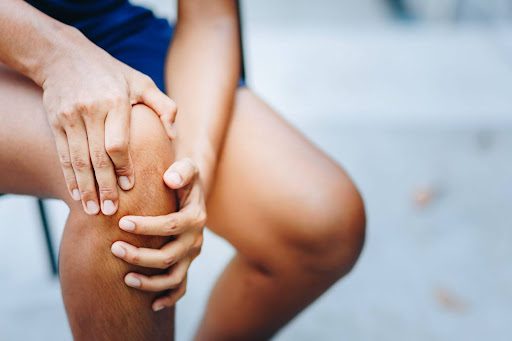Childhood is a crucial time for physical development and participation in sports. While sports offer numerous benefits, they can also come with the risk of injuries, particularly for growing bodies. Osgood-Schlatters disease (OSD) is one such condition that commonly affects child athletes, causing discomfort and temporarily altering their participation in sports.
Understanding the basics of OSD can help parents and children recognize the importance of prevention and seek appropriate treatment. At Paris Orthopedics, we aim to give you the information you need to stay healthy and avoid injury.
Understanding Osgood-Schlatter Disease
Osgood-Schlatter disease is a condition characterized by inflammation of the patellar ligament, which connects the kneecap (patella) to the shinbone (tibia). This inflammation occurs at the point where the ligament attaches to the tibia, leading to pain, swelling, and tenderness just below the kneecap. OSD is most prevalent in children and adolescents, typically between the ages of 10 and 15, during the peak of growth spurts.
Causes And Risk Factors
The primary cause of Osgood-Schlatter disease is the rapid growth and development of bones during adolescence. As children go through growth spurts, the bones, muscles, and tendons may grow at different rates, leading to tension and stress on the patellar ligament. This stress, combined with repetitive use of the knee in activities like running and jumping, can contribute to the development of Osgood-Schlatters.
Certain risk factors increase the likelihood of developing Osgood-Schlatter disease. These include engaging in sports that involve running, jumping, or rapid changes in direction, such as soccer, basketball, and gymnastics. Additionally, children who are physically active or participate in intense training regimens may be more susceptible to OSD.
Symptoms And Diagnosis
The hallmark symptom of Osgood-Schlatter disease is knee pain, typically located just below the kneecap. This pain often worsens with physical activity and may be accompanied by swelling and tenderness. In some cases, a bony bump may develop at the site of the inflammation.
Diagnosing OSD usually involves a thorough physical examination by a healthcare professional. X-rays may be ordered to rule out other potential causes of knee pain and to assess the severity of the condition. While Osgood-Schlatter disease is generally self-limiting and resolves with time, proper management is essential to alleviate symptoms and prevent long-term complications.
Management And Treatment
The primary goal of managing Osgood-Schlatter disease is to relieve symptoms and allow the child to continue participating in physical activities while avoiding further stress on the affected knee. Conservative treatments for Osgood-Schlatters often include rest, ice therapy, and the use of over-the-counter pain relievers. In some cases, a knee brace or strap may be recommended to provide support to the patellar ligament. Education about proper warm-up techniques, stretching, and modifying activity levels can also help prevent symptom exacerbation.
Return To Sports And Long-Term Outlook
Most children with Osgood-Schlatters disease can return to their sports activities once their symptoms have subsided and their knees have fully healed. However, it’s essential to manage expectations and gradually reintroduce activities to prevent a recurrence of symptoms.
In the long term, Osgood-Schlatter disease does not typically result in lasting complications. As the child completes their growth spurt, the bones and tendons usually adapt, and the symptoms gradually resolve. However, it’s crucial for parents, coaches, and healthcare providers to work together to create an environment that supports the child’s physical development while minimizing the risk of injury.
Contact Paris Orthopedics
Do you have a child dealing with osgood-schlatters? Is it affecting their ability to participate in sports or their day-to-day mobility? It may be time to find an orthopedic provider you can trust. Paris Orthopedic and Sports Medicine’s board-certified physicians offer patients comprehensive orthopedic and musculoskeletal services. Our services include surgical and non-surgical treatments for sports injuries and a broad range of bone, muscle, and joint problems. For more information, visit our website to schedule an appointment or give us a call at (903) 737-0000.


